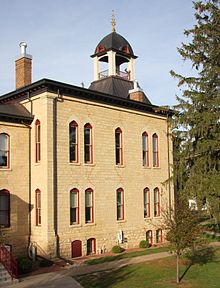After Thirty Years, It Is Time To Raise The Compensation for SPD Appointments
 I’ve been asked to be the alumni blogger for the month of May. It’s about time!
I’ve been asked to be the alumni blogger for the month of May. It’s about time!
For those who don’t know me, I am a criminal defense attorney in Wisconsin. I am currently the President of the Wisconsin Association of Criminal Defense Lawyers (WACDL). Because of this position, and the fact that I’ve practiced exclusively in the criminal defense field for 12 years, my posts will generally focus on defense-related issues.
In that vein, perhaps the most pressing criminal defense-related issue in Wisconsin remains the unconscionably low rate of compensation paid to lawyers who take appointments from the State Public Defender’s Office (SPD).
Here’s the nutshell version of what currently happens. Indigent defendants are constitutionally guaranteed representation by lawyers who work for the SPD. But the SPD obviously can’t handle all of the cases assigned to the agency. For one, there are cases with co-defendants, where ethical rules preventing conflicts of interest would preclude one “firm” from representing both defendants. In other situations, a flood of criminal prosecutions renders the SPD staff unable to handle all of the cases. Consequently, private attorneys will sometimes step up to the plate, and agree to take these cases.
These cases, known as SPD appointments, are paid at a rate of $40 an hour.

